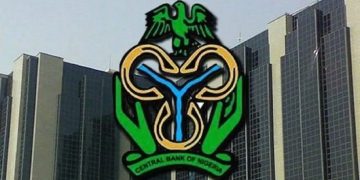The Federal Government of Nigeria has directed all Ministries, Departments, and Agencies (MDAs) to submit detailed statements of every account they maintain in commercial banks. This move is part of renewed efforts to enforce compliance with the Treasury Single Account (TSA) policy, which mandates that all government funds be consolidated under the Central Bank of Nigeria (CBN).
The directive was issued by the Accountant-General of the Federation (AGF), Shamseldeen Ogunjimi, who expressed concern that several MDAs still operate bank accounts outside the TSA framework despite multiple circulars mandating full adherence. According to the circular, each MDA is required to provide comprehensive details of all active, dormant, and closed accounts, including the account name, number, bank branch, and current balance.
The Accountant-General emphasized that the new directive takes immediate effect and forms part of the Federal Government’s ongoing reforms aimed at promoting fiscal responsibility, transparency, and efficiency in public finance management.
Background and Significance of the Treasury Single Account
The Treasury Single Account (TSA) is a unified financial system designed to consolidate all government revenues and receipts into one account or linked accounts managed by the Central Bank of Nigeria. Introduced in 2015 under the administration of former President Muhammadu Buhari, the TSA seeks to eliminate financial leakages, improve cash management, and enhance accountability in the handling of public funds.
Under this policy, all government revenues are collected through the TSA platform using electronic payment systems integrated with the CBN and authorized deposit money banks. The objective is to ensure that every kobo of government revenue is properly accounted for and available for use as needed.
Despite the success of the TSA in reducing revenue leakages, investigations by the Office of the Accountant-General have revealed that some MDAs continue to maintain unauthorized accounts in commercial banks. This practice undermines the goals of the TSA, creates room for mismanagement, and hinders the government’s ability to manage its cash resources effectively.
Renewed Crackdown on Non-Compliance
The latest directive from the Accountant-General marks a renewed phase in the enforcement of the TSA. It is part of a broader plan to identify MDAs that still hold government funds outside the central framework and to ensure that such funds are immediately transferred to the TSA.
According to officials familiar with the development, the OAGF is collaborating with the Central Bank and relevant auditing bodies to reconcile existing records and verify compliance. Agencies that fail to comply with the directive risk administrative sanctions, including possible leadership queries and budgetary restrictions.
Government insiders say the new enforcement drive is intended to close remaining gaps in the TSA implementation and prevent the diversion of government funds into unapproved accounts. The measure is also expected to strengthen the credibility of Nigeria’s public finance system and support ongoing anti-corruption efforts.
Benefits of Full TSA Implementation
Full compliance with the Treasury Single Account policy will improve financial transparency across the federal government. By consolidating all government revenues in a single account, the system provides a complete and accurate picture of the nation’s cash position at any given time.
It also enhances efficiency in cash management by reducing idle balances scattered across different MDAs. With a unified account, the government can plan expenditures more effectively, minimize the need for borrowing, and reduce the cost of debt servicing.
The TSA also promotes accountability by ensuring that every transaction can be traced from source to use. It strengthens oversight, prevents the diversion of funds, and ensures that revenues are available for critical national development projects.
Challenges and Stakeholder Reactions
While the TSA policy is widely regarded as a key instrument for fiscal discipline, some MDAs have expressed concerns that centralizing funds slows down operational processes. They argue that the need to obtain approvals for expenditure releases from the central platform sometimes causes delays in implementing projects and programs.
Financial experts, however, maintain that such operational challenges can be addressed through improved coordination and digital integration between the Central Bank, the Accountant-General’s office, and the MDAs. They insist that the benefits of transparency and accountability far outweigh the temporary administrative inconveniences.
Definition of the Treasury Single Account (TSA)
The Treasury Single Account (TSA) is a unified structure of government bank accounts that consolidates all cash resources of the government into a single account or set of linked accounts. In Nigeria, the TSA is domiciled with the Central Bank of Nigeria (CBN) and managed by the Office of the Accountant-General of the Federation (OAGF).
The main objectives of the TSA are to ensure efficient control and management of government cash resources, eliminate idle balances in multiple accounts, enhance transparency in revenue collection, and reduce opportunities for financial leakages. It also supports better budgeting and fiscal planning by providing real-time visibility of government funds.























































